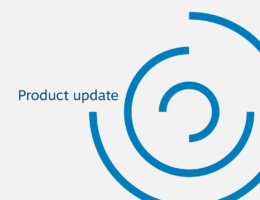
Hedge accounting hot topics and lessons learned
-
Authors
Brittany Jervis
Managing Director
ChathamDirect and Hedge AccountingCorporates | Kennett Square, PA
-
Summary
The market volatility and forecast uncertainty over the past 18 months introduced many new challenges and opportunities for corporate financial teams. To manage financial risk and minimize volatility in the financial statements, many accounting and treasury teams revisited their hedging strategies to see where introducing, expanding, or revising their hedge accounting programs could strengthen their financial position.
Chatham saw clients focus on the following key areas:
Managing forecast uncertainty
As the global economy continues to face disruptions, many companies face challenges around missed earnings and reduced confidence in their forecasted revenue targets. These consequences are more pronounced when applying hedge accounting using the critical terms match (CTM) method since you must assert that your quantity of hedged transactions will be greater than or equal to the notional of the hedging instrument — and that the timing will align. With significant drops or delays in sales, however, your organization could fail to earn sufficient revenue to cover the hedged amount. This means you could lose hedge accounting and may need to take amounts in OCI to the P&L. If your organization faces this issue, you should consider transitioning from CTM to a long-haul method, utilizing exposure windows. By including language in hedge documentation that allows for a three- or six-month window for the exposure to materialize and assessing effectiveness quantitatively associated with the exposure window, you can build in additional flexibility, providing more time to make up for those lost sales before they impact your hedging relationship.
Another strategy seen in practice utilized by companies to manage forecast uncertainty while still maintaining a target level of economic coverage is intentional over-hedging. With this strategy, your organization enters into a derivative contract for a notional amount in excess of the underlying hedged transactions and can qualify for hedge accounting so long as the relationship is highly effective at offsetting the hedged risk.
Prioritizing hedge accounting for commodities
As companies face compressed margins due to rising commodity prices, we have seen many treasury and accounting teams begin to prioritize applying hedge accounting for commodity exposures — including natural gas, steel, resin, and more. Because commodity hedging strategies may not perfectly match underlying exposures, understanding the nuances of hedge accounting can help minimize the volatility from these programs on your organization’s financial statements.
Navigating the practical implications of ASC 848
With the transition away from LIBOR rapidly approaching, companies are navigating the practical implications and requirements of ASC 848 to maintain hedge accounting on existing instruments, as well as understanding considerations for applying hedge accounting on future interest rate derivatives. Chatham continues to collaborate with auditors, standard setters, and regulators on reference rate reform issues and is in a position to advise our clients on best practices and most effective strategies for ensuring accounting results continue to reflect economic objectives.
Raising the bar on hedge accounting
With the right tools and expertise, many organizations have found hedge accounting to be not only attainable, but also essential, as market volatility has significantly increased in recent years. As the trusted hedge accounting advisory and technology partner for 700 accounting clients across the globe, Chatham is well-equipped to help companies of all sizes and industries grow their hedge accounting programs to protect financial results and stay competitive in an increasingly complex and challenging business environment.
The next year will bring many opportunities for hedge accounting professionals to deliver value to their organizations. Within this shifting landscape, accessing the information, expertise, and tools to execute a successful hedge accounting program has never been more critical. Contact Chatham if you would like to speak with an expert about your hedge accounting strategy.
Subscribe to receive our market insights and webinar invites
Talk to an expert
Complete this form to speak with a practitioner about your hedge accounting program.
Disclaimers
Chatham Hedging Advisors, LLC (CHA) is a subsidiary of Chatham Financial Corp. and provides hedge advisory, accounting and execution services related to swap transactions in the United States. CHA is registered with the Commodity Futures Trading Commission (CFTC) as a commodity trading advisor and is a member of the National Futures Association (NFA); however, neither the CFTC nor the NFA have passed upon the merits of participating in any advisory services offered by CHA. For further information, please visit chathamfinancial.com/legal-notices.
Transactions in over-the-counter derivatives (or “swaps”) have significant risks, including, but not limited to, substantial risk of loss. You should consult your own business, legal, tax and accounting advisers with respect to proposed swap transaction and you should refrain from entering into any swap transaction unless you have fully understood the terms and risks of the transaction, including the extent of your potential risk of loss. This material has been prepared by a sales or trading employee or agent of Chatham Hedging Advisors and could be deemed a solicitation for entering into a derivatives transaction. This material is not a research report prepared by Chatham Hedging Advisors. If you are not an experienced user of the derivatives markets, capable of making independent trading decisions, then you should not rely solely on this communication in making trading decisions. All rights reserved.
21-0343








